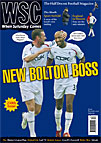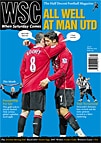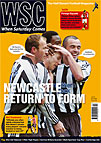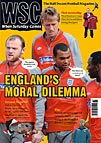 Dear WSC
Dear WSC
In response to my letter published in WSC 275, Mark Brennan Scott accepts that we send someone to each of the weekend’s Premier League games, to commentate live, but not unreasonably asks whether Match of the Day commentators ever “re-record bits they are unhappy with”. Not exactly, but the beauty of an edit rather than a live game is there is scope for tweaking both the sound and visuals by transmission time. Every now and then, a commentator will, for example, misidentify a goalscorer and then correct themselves, in which case we have been known to remove take one in the edit. I’ve found a copy of a letter I had published in WSC 240 in which I said: “If a commentator gets something wrong at the time we may even spare him his blushes at 10pm by removing the odd word.” That remains the case, but most of the time the commentator’s natural reaction works best. If it takes a couple of replays before they identify a deflection or suspicion of handball, that will nearly always feel more authentic than trying to look too clever after the event. In shortening a game for transmission, we may occasionally “pull up” a replay or remove a few words, but would almost never re-record any section of a commentary unless there’s been a technical problem. Furthermore, in all cases the commentators go home after the post-match interviews and a producer back at base edits the pictures and sound recorded at the time. In early days of the Premier League, only two or three games had multi-camera coverage and commentators present, so there were occasional attempts to add a commentary to single-camera round-up games, for example, for Goal of the Month. However, not every commentator was a convincing thespian and one or two “Le Tissier’s capable of beating three men from here and curling one into the top corner. Oh my word, he has…” moments did slip through. With multi-camera coverage and a commentator at every game, that no longer happens.
Incidentally, call us old-fashioned but there was a degree of pride in this office in MOTD’s recent use of “crashed against the timber” as cited in Steve Whitehead’s letter. Better that – or maybe “hapless custodian” – than some unpleasant modern notion like “bragging rights”.
Paul Armstrong, Programme Editor, BBC Match of the Day
Read more…
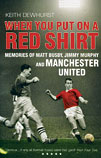 Memories of Matt Busby, Jimmy Murphy and Manchester United
Memories of Matt Busby, Jimmy Murphy and Manchester United 
